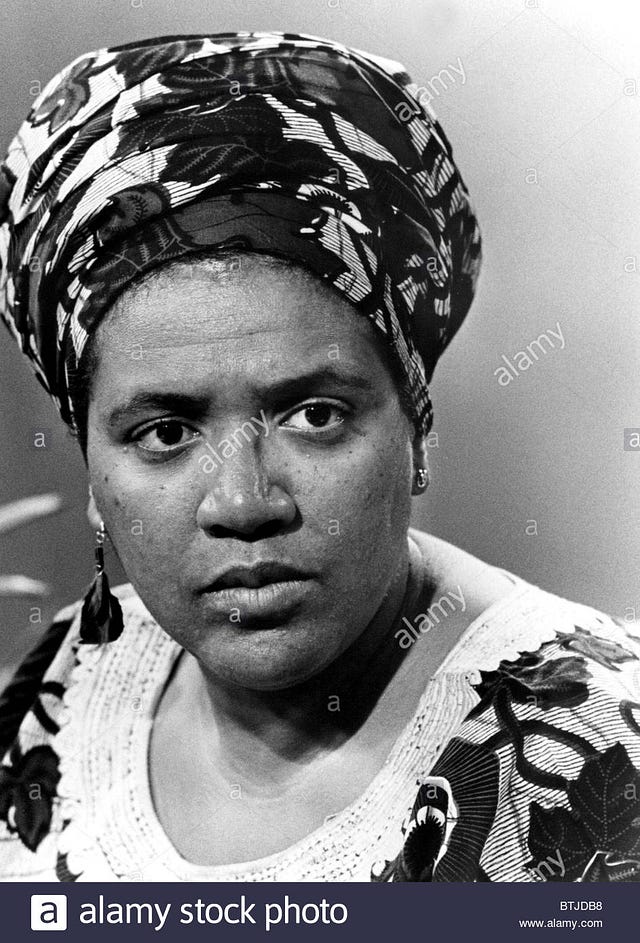The queer Black feminist poet and thinker Audre Lorde famously said, “The master’s tools will never dismantle the master’s house.” Thirty years after I first heard that, I can’t claim to understand it from my non-Black, non-Lesbian perspective, but I am starting to realize the importance of the question she raises.
We totally live in the masters’ — I moved the apostrophe because there are many masters — house, or more accurately, the house the masters have built for us. You look out the window, and you see exactly what the masters want you to see. A world of fear, full of terror, of scarcity and constant competition for necessities.

From the masters’ house, we see a world in which some people count and most don’t, and animals and plants never do. A world in which we are inadequate, and isolated, where we are constantly prodded to medicate our stress and suffering by consuming. We may medicate with an actual drug, or it might be material success, travel, food, cars, porn, or clothes, or whatever, but we are not to look at what’s causing the depression and anxiety.
You turn on the news or the Net, and you see war everywhere, environmental destruction and misery. We are ruled by corrupt leaders, hired by a class of obscenely wealthy, extremely powerful men whose identities we barely know.
You can escape by watching professional gladiators combat each other in sports arenas, or amateurs humiliate themselves on reality TV. You see or hear “news” that is actually a series of scripted stories, whose reality we may doubt, but which we have no way to investigate. That is the world we live in; that is the masters’ house, a nightmare that isn’t even our own.

Not where we want to live
The masters’ house lives inside of us, too. The isolation, the scarcity, the helplessness, the fear we feel are part of the masters’ house. The master is living in our minds and in our bodies and causing us to do all sorts of things that strengthen him, while harming ourselves, our loved ones and our world.
The master perhaps cannot help himself, because he is living in that same house, just on a different floor. We’re all in different rooms in the same house. Look: Giant gold mines operate in Peru. Thousands of indigenous people have had to flee their ancestral land, either at gun point or because the mines use up and pollute their water. They cling to life among the dispossessed in the cities. Maybe some have started to deal drugs or work as prostitutes.
This catastrophe didn’t just happen: various kinds of people did this to the natives. First, they had to find the gold. Geologists and engineers found it, because that is their job and they are isolated from the people being harmed. If they feel any guilt, they can buy stuff to feel better. That’s the house they live in.
Bankers had to finance the mines. They did this because making more money, in whatever way, is vital to their survival in their mental house. It couldn’t have been a belief that the world needed more gold. There’s plenty of gold.
Because the gold is not concentrated enough to dig out profitably, the mining companies scoop up tons of dirt in trucks and treat it with cyanide and other chemicals to leach out the gold. Someone had to figure out how to do that. Those someones felt disconnected from the Earth and people they were poisoning. They thought they didn’t live in that house, but they do, though the masters own it.
Ordinary workers operate those trucks and those leaching plants. They don’t want to, but in the masters’ house, they “need” the pay to survive. That’s how life in the masters’ house works.
Outside the Masters’ House
Can such a huge house, all around us and within us, be dismantled? What tools could possibly accomplish that, and where would we get them? If we somehow dismantled the house, where would we live?
When told that he couldn’t use the master’s tools to dismantle the master’s house, activist and professor Robert Jensen replied, “I’ll use whatever tools I want to use.” And Derrick Jensen (no relation,) wrote, “Whoever wrote that you couldn’t use those tools had obviously never dismantled a house, or built one.”
Some tools, though, clearly do belong to the master and cannot be used against his house. Elections come to mind here. Democracy may have been everyone’s tool at one point, but in the modern USA, elections are controlled by corporate media, corporate parties, lobbyists, unelected bureaucrats and spies. Lorde said of such tools, “They may allow us temporarily to beat the master at his own game, but they will never enable us to bring about genuine change.”
Sometimes, though, it’s hard to tell to whom a tool belongs. Are guns the master’s tools? They seem to be, but at times in history the people have used them to dismantle their masters’ house.
Audre Lorde said that art and community were two vital tools women (her audience for this talk) could use. Truth-telling is another. Australian journalist Caitlin Johnstone says “The entire machine of oppression is held together by narrative. By made-up stories. By fairy tales for adults. Those who insist that there is no hope are living in [the masters’] fantasy world.” A truer narrative might cause it to fall.
When we stop believing the master’s lies, we can move out of his house and make a new one for ourselves. How can this be done when the masters’ lies are projected at us 24/7 in dozens of technologies and platforms, what CIA official Frank Wisner called his “Mighty Wurlitzer,” on which he could play any propaganda tune? No matter how creatively we project a more truthful reality, how can people see it, act on it, and not get shot for doing so? Or to win, even if we do get killed in the process?
If those tools have been found, I haven’t heard about them, though art and solidarity are certainly two of them. Audre Lorde said turning differences into strengths is crucial. She thought words could be powerful tools and encouraged women to use them, and to nurture each other.
Will these tools be enough? They haven’t been so far, but while developing more tools, at least we can teach ourselves to see the house for what it is, a gaudy prison, one based on illusion and fear more than on real walls. We can get out; we can bring it down. Keep speaking up.

Brilliant as usual. Getting out of the house, yes. But do we make an escape bringing as many with us as we can? Like Jonathan Jackson who shared the fate of those who tried to break out of the Warsaw Ghetto. Is it going down fighting? I’m grateful that some choose that way, though I don’t know if I have the courage to make that kind of run for it. Is it using any tool that works or every tool we can? I have recommitted to elections as a tool. Hacking, gerrymandering, voter suppression all real + disappointments with politicians, legislation, court decisions don’t to me add up to mean that each one of us with access to the vote should not exercise that right and fight so that others can share it. Go Alexandrea Ocasio-Cortez.
A lot of entrepreneurs have become hip to this knowledge and have decided to make promotional videos to create popularity for their brands. Videos raise awareness as well as funds. They can bring in an audience or turn them away. Look below at the best ways to make a promotional video.
Pingback: Photoshop Discount